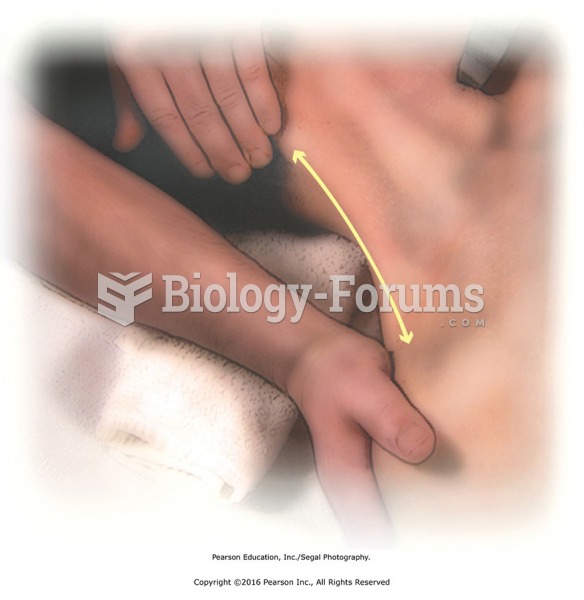|
|
|
Inotropic therapy does not have a role in the treatment of most heart failure patients. These drugs can make patients feel and function better but usually do not lengthen the predicted length of their lives.
Your chance of developing a kidney stone is 1 in 10. In recent years, approximately 3.7 million people in the United States were diagnosed with a kidney disease.
Medications that are definitely not safe to take when breastfeeding include radioactive drugs, antimetabolites, some cancer (chemotherapy) agents, bromocriptine, ergotamine, methotrexate, and cyclosporine.
The Romans did not use numerals to indicate fractions but instead used words to indicate parts of a whole.
Blood in the urine can be a sign of a kidney stone, glomerulonephritis, or other kidney problems.
 Stretch neck in lateral flexion. Place one hand on the head and the other hand on the shoulder and ...
Stretch neck in lateral flexion. Place one hand on the head and the other hand on the shoulder and ...
 Pelvic rock. Place your right hand over the recipient’s left hip bone. Place your left hand over ...
Pelvic rock. Place your right hand over the recipient’s left hip bone. Place your left hand over ...





